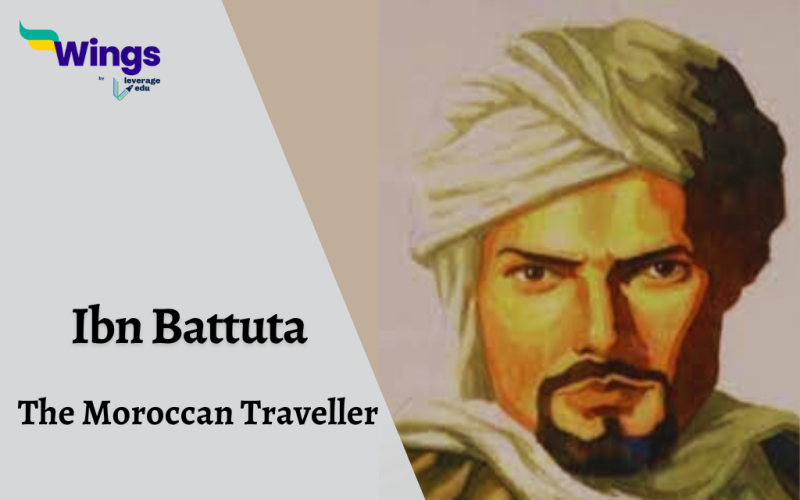Ibn Battuta was a famous medieval Moroccan traveller and scholar. He is often praised as one of the greatest explorers in history because of his extensive journeys covering a substantial portion of the world. Moreover, Ibn Battuta’s expeditions were not only a personal quest for adventure but also an opportunity to gain knowledge. He wanted to immerse himself in different cultures, which also led him to serve as a diplomat and judge. Furthermore, Ibn Battuta’s life and travels symbolise a remarkable chapter in the history of exploration. He indeed left an indelible mark on the historical narrative.
Table of Contents [show]
What was the Early Life of Ibn Battuta?
Ibn Battuta was born on the 24th of February 1304, in Tangier, Morocco, during the Marinid Sultanate. He was born into a family of Islamic legal scholars and received a traditional education in Islamic law. Nonetheless, Ibn Battuta’s curiosity and adventurous spirit were his guides to pursue a life of exploration. At the age of 21, he set out on a pilgrimage to Mecca, which is also known as the Hajj. It was the journey to Mecca that marked the beginning of his extensive travels around the world.
Over the next three decades from 1325 to 1354, Ibn Battuta explored the world by visiting regions such as North Africa, the Middle East, Central Asia, and the Indian subcontinent. He also wrote about his journey throughout the world in a notable work, Rihla. Moreover, his journeys exceeded those of his contemporaries which included Marco Polo, thus making him an exceptional figure in the history of exploration of the world.
Also Read: Who was Muhammad Ghori?
Why did Ibn Battuta come to India?
In the year 1333, Ibn Battuta arrived in India looking for employment opportunities and a sense of adventure. After traversing the Middle East and Central Asia, it eventually led him to India during the Delhi Sultanate. He arrived during the reign of Muhammad bin Tughlaq. Moreover, Ibn Battuta made an impression on Tughlaq through his extensive knowledge and experience. The ruler appointed Ibn as a qadi or judge in Delhi.
Furthermore, India held a particular fascination for Ibn Battuta due to its rich cultural tapestry, diverse communities as well as flourishing trade routes. India was also known for its prosperous courts, and Ibn Battuta, seeking both adventure and opportunities found it to be a compelling destination.
Also Read: Who was Qutubuddin Aibak?
What was Ibn Battuta’s Role in India?
In addition, Ibn Battuta came to India for prosperity and due to his sense of curiosity, he also had a role in the history of India:
- Ibn Battuta served as a qadi or judge in India for six years during Muhammad bin Tughluq’s reign.
- He actively participated in the affairs of the Delhi Sultanate which included navigating a complex political landscape.
- However, his tenure in India coincided with political instability and social changes which were marked by rebellions and invasions.
- Despite the challenges he faced he documented cultural, economic, and social aspects of India during his time in India.
- Ibn Battuta explored prominent Indian cities such as Delhi, Calicut, and the Malabar Coast.
- In 1342, he was a part of Tughlaq’s envoy to the Chinese envoy who wanted to rebuild a Buddhist temple.
- Furthermore, his observations offer valuable insights into the diverse communities, customs, and trade practices of medieval India.
Why is Ibn Battuta Important?
Ibn Battuta’s documentation serves as an important part of our history, here is how:
- Historical Documentation: Ibn Battuta’s comprehensive travels and detailed accounts in his “Rihla” serve as valuable historical documentation of the medieval world further providing insights into societies, economies, and political landscapes around the world during that time.
- Cultural Diversity: The observations of India offer a minute understanding of the cultural diversity present in the subcontinent during the 14th century. He throws light on customs, traditions, and the coexistence of different communities.
- Interconnected Civilizations: Ibn Battuta’s journeys emphasise the interconnectedness of different civilisations during the medieval period. Moreover, it showcases the extensive trade routes, cultural exchanges, and diplomatic interactions of that era.
- Role in the Delhi Sultanate: As a qadi or judge in the Delhi Sultanate, Ibn Battuta’s active role in administering justice and navigating the complex political landscape is notable. Moreover, his experiences contribute to our understanding of the challenges faced by the Delhi Sultanate during his time.
- Inspiration for Exploration: Ibn Battuta’s adventurous spirit and unquenchable curiosity continue to inspire explorers and scholars. Thus, emphasising the human capacity for exploration, adaptability, and cross-cultural understanding.
- Contribution to Geography: Ibn Battuta’s travels greatly expanded geographical knowledge during his time, further contributing to a broader understanding of the world’s geography and the connections between distant regions.
FAQ’s
Ibn Battuta was famous as a traveller and explorer. He explored the world and noted down his insights in his work, the Rihla.
Ibn Battuta visited India in 1333, during the reign of Tughlaq of the Delhi Sultanate.
Ibn Battuta saw the diverse communities, customs, and trade practices of medieval India.
Relevant Blogs
| Emperor Akbar | Lodi Dynasty |
| Babur | Mughal Emperor Jahangir |
| Humayun | Shah Jahan |
| Battle of Panipat | Slave Dynasty |
| Alauddin Khilji | History of Indian Art |
We hope you liked our blog. If you want to read more articles like this you can visit our general knowledge page on Indian History!
 One app for all your study abroad needs
One app for all your study abroad needs















 45,000+ students trusted us with their dreams. Take the first step today!
45,000+ students trusted us with their dreams. Take the first step today!
